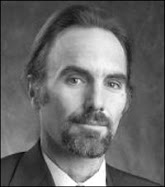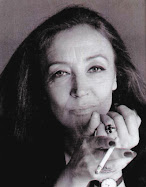 An execution in Texas Stirs Debate
An execution in Texas Stirs Debate
By David Paulin
The counter-culture and anti-war movement of the 1960s and 70s had a destructive influence on millions of young Americans who rebelled against authority, experimented with drugs, and "dropped out." One of them was David Lee Powell. He was from a small Texas town and had nearly perfect SAT scores when he entered the University of Texas in Austin as a freshman. But before long, the valedictorian of his 15-member high school class was experimenting with drugs and had became an antiwar "activist."
 Today at 6 p.m., Powell, 59, is scheduled to be executed in Texas for shooting to death an Austin police officer, Ralph Ablanedo, during a traffic stop 32 years ago. Arrested shortly after the killing, Powell, then 27, had a ragged and crazed appearance not unlike Charles Manson. He shot Ablanedo ten times in the chest with an AK-47. The high-powered assault rifle's bullets pierced Ablanedo's bulletproof vest.
Today at 6 p.m., Powell, 59, is scheduled to be executed in Texas for shooting to death an Austin police officer, Ralph Ablanedo, during a traffic stop 32 years ago. Arrested shortly after the killing, Powell, then 27, had a ragged and crazed appearance not unlike Charles Manson. He shot Ablanedo ten times in the chest with an AK-47. The high-powered assault rifle's bullets pierced Ablanedo's bulletproof vest.
Officer Ablanedo, one year younger than Powell, had made far different choices in life. Clean-cut and well-respected, he was married and had two children. Powell had been on his way to do a drug deal when he was stopped. In addition to his AK-47, he was carrying $5,000 in methamphetamine, a .45-caliber pistol, and a hand grenade that he threw at police who were pursuing him; it didn't go off.
During his 32 years in prison, Powell has been described as a model prisoner. His good behavior and good deeds, say his supporters, ought to provide him with some sort of redemption -- namely, the commutation of his death sentence to life in prison. After all, Powell is not the same man he was 32 years ago, argues the liberal editorial board of the Austin American-Statesman; accordingly, his execution has "lost its meaning." Powell, who now looks nothing like he did 32 years ago, also has himself put forth the case for sparing his life. "Every person is more than the worst thing that they've ever done, and I'm no exception," he said during a jail-house interview with Statesman reporters.
On the other hand, members of the law-enforcement community in Austin are among many who are glad to see justice finally being delivered. It will bring "closure" to many whose lives were ruined by Powell, they say. Many Austin police officers will be attending the execution at the state prison in Huntsville, Texas. Others are said to be heading to a local bar at 6 p.m. to drink a toast to their fallen colleague at the moment of his killer's execution.
Among those in the death chamber will be the sister of Ralph Ablanedo, Irene. According to the Statesman, she "plans to stand at the window in the Huntsville death chamber to watch Powell die from five feet away. She will be thinking about her brother, what he meant to his family and how he was taken away too early. The pain of loss still burns."
"I can't wait for that bastard to take his last breath," she said. "That is what he deserves."
The death penalty arouses much debate. It's not an issue that neatly divides liberals and conservatives. Consider the case of Karla Faye Tucker, who was executed in 1998 in Texas at the age of 38. She grew up in a troubled family and was into sex and drugs in her early teens. Like her mother, she was for a time a Rock' n Roll groupie. In 1981, Tucker and her boyfriend, Danny Garrett, murdered Jerry Dean and Deborah Thornton during a late-night burglary. They used a hammer and pick-ax to brutally kill the couple in their bedroom.
In prison, Karla Faye Tucker converted to Christianity, and her conversion seemed genuine to many. Here is a YouTube interview with her, during which she talks about her new-found faith. She said she was not afraid of dying, because "Jesus has prepared a place for me."
Conservatives such as Speaker of the U.S. House of Representatives Newt Gingrich and televangelist Pat Robertson lobbied to have her sentence committed to life; they were part of a large international movement seeking a life sentence for Tucker -- one that brought together many liberals and conservatives. Also lobbying in Tucker's behalf was the brother of murder victim Deborah Thornton, who felt there would be no "closure" in Tucker's execution. But Texas Gov. George W. Bush, steel-willed in his conviction, declined to commute Tucker's sentence to life. “May God bless Karla Faye Tucker and may God bless her victims and their families,” he said.
Reasonable people can disagree over the death penalty. Some are uneasy over it because of the possibility of executing an innocent person, although there were no such concerns in David Lee Powell's case -- and nor in the case of Karla Faye Tucker. What's more, the evidence is paltry that the execution of ordinary murderers serves as a deterrent to other criminals (although the same probalby cannot be said in respect to using the death peanlty against imprisoned murderers who kill again while in prison). Imprisoned for life, they would have nothing else to loose except for their lives.
But some crimes are so ghastly that the death peanalty seems approprite. One example was the execution of Saddam Hussein, which sent a powerful message at the time to dictators around the world (especially the Middle East), while also providing closure for untold numbers of Saddam's victims. His trial and execution paved the way for rebuilding a psychologically-scarred nation.
In the cases of David Lee Powell and Karla Faye Tucker, there can ultimately be no debate about one thing: Both to a great extent were products of their times.
Photos are from the Austin American-Statesman. This was originally published at the American Thinker blog.
.
 Accused Jamaican Drug Lord Pleads 'Not Guilty' in New York City Court
Accused Jamaican Drug Lord Pleads 'Not Guilty' in New York City Court









